- AI Weekly Wrap-Up
- Posts
- New Post 6-11-2025
New Post 6-11-2025
Top Story
Apple doubles down on old technology. Sorry, Steve, AI will have to wait.
Agincourt. Tours. Gettysburg. History is littered with examples of battles that should not have been turning points, but in hindsight, were. Apple’s WWDC developer’s conference this week may someday be seen as the point at which the company definitively lost its mojo. In a year in which rivals are sprinting ahead with eye-popping AI integrations, Apple plods in the same old rut, touting a flashy new visual interface (“Liquid Glass”), when all signs point toward the next new interface being just talking to your AI-powered device, which then handles stuff for you. The few times AI was mentioned, it was just catch-up features like live translations and image doodads. AI Siri is at least a year away, but OpenAI’s Voice Mode is already better than Siri ever was, and maybe ever will be. I have been a fan of Tim Cook’s stewardship of Steve Job’s vision, but Steve would never, never have allowed Apple to be a ho-hum follower in the greatest tech revolution of our age. It’s now abundantly clear - Steve Jobs is truly dead. And he’s spinning in his grave.
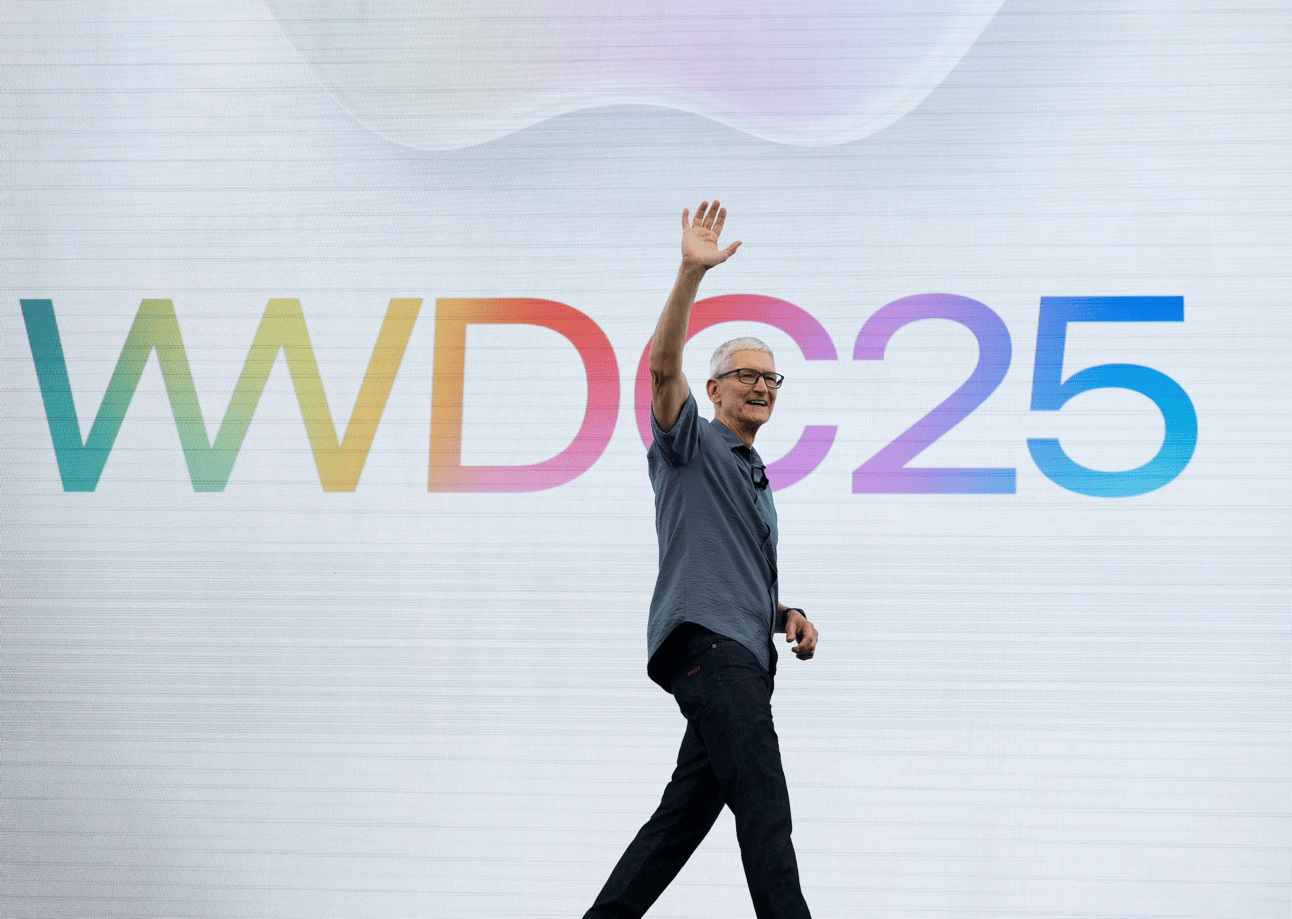
Apple CEO Tim Cook waves goodbye to his reputation and billions in shareholder value.
Clash of the Titans
OpenAI hits 3 million paid business users, releases a slew of tools
Demonstrating who does have the AI mojo nowadays, OpenAI announced that it now has 3 million paid business users (and millions more who don’t pay), and to celebrate, it released a bevy of new tools useful for business. The tools include “connectors” to hook ChatGPT to common business productivity tools like Google Drive, or Microsoft’s SharePoint. The company also released Record Mode for meeting transcriptions, plus enhanced versions of Deep Research and its Codex software development tool. OpenAI is aggressively pursuing the enterprise market, and appears to be making inroads.
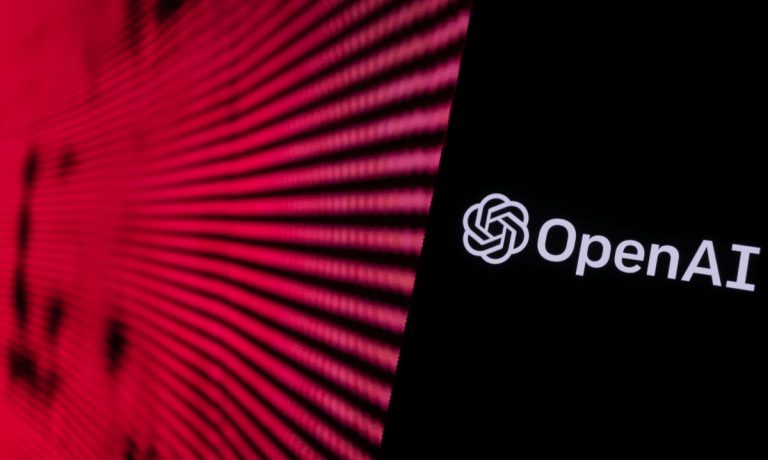
OpenAI wants to AI-ify your business.
OpenAI and Anthropic are fighting
Like a divorce that starts out amicable but then goes bad, relations between the 2 top AI foundation model startups, OpenAI and Anthropic, have taken a turn for the worse. Anthropic fired the first shot, by abruptly kicking AI coding startup Windsurf off its platform, creating a scramble for the small company to maintain service to its customers. Jared Kaplan, an Anthropic co-founder and current Chief Science Officer, explicitly confirmed that the banishment was due to OpenAI’s recent acquisition of Windsurf. Kaplan , like most of the founders of Anthropic, was originally at OpenAI, where he was deeply involved in development of GPT 3, the immediate precursor to ChatGPT. Almost immediately, online forum Reddit filed a lawsuit against Anthropic for allegedly scraping its forums for AI training without permission. And who is the third-largest shareholder in Reddit? None other than our boy Sam Altman, CEO of OpenAI. Tit-for-tat?
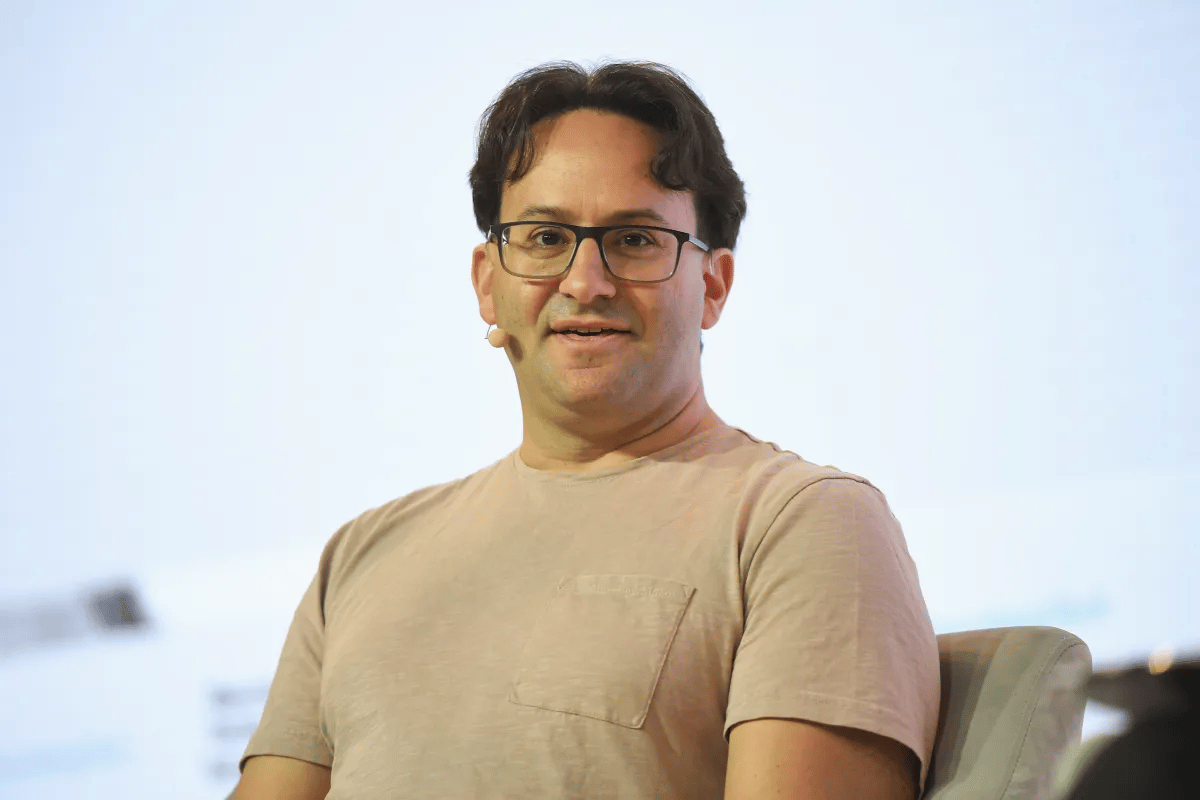
Ex-OpenAI employee and now Anthropic Chief Science Officer, Jared Kaplan has sharp elbows.
Runway partners with Lionsgate and AMC Networks
Use of AI in the entertainment industry is hugely controversial, because of the potentially devastating consequences to actors, writers, musicians, film crews, recording studios, and more. Up to now, movie studios and cable networks have tread cautiously, to avoid backlash from these groups. Now, however, with improving AI video technology getting ever closer to being able to quickly produce broadcast-quality films with just a few text prompts, the economics are becoming compelling. So compelling that majors players are starting to jump on board. Just this past week, AI video startup Runway announced 2 major alliances. The first was with legendary film studio Lionsgate, who will have Runway train a proprietary AI model on the studio’s 20,000 film and television titles. This model will assist filmmakers in pre-production and post-production tasks. Lionsgate makes lots of action movies (like the John Wick franchise) which require blowing a lot of stuff up. Just by having AI render those explosions virtually to film without having to actually destroy expensive props and sets is projected to save the studio “millions and millions” of dollars. Not resting on its laurels, Runway made a pact with AMC Networks, once a purely cable network, which has now edged into streaming and original content creation as well (Mad Men, Breaking Bad). AMC projects using AI for marketing and for sketching out scenes before filming, but for now is tip-toeing around the issue of using AI to actually produce finished scenes.

AI video startup Runway is partnering with both Lionsgate and AMC Networks.
Fun News
PWC report on jobs in the era of AI: Way better than you feared
Big-Four accounting firm PWC has released their 2025 report on the impact of AI on jobs - and their take is surprisingly rosy. The overall picture seems to be that companies using AI are not yet eliminating a lot of jobs, but are using the extra productivity of their workers to increase revenue without commensurate hiring, increasing revenue per employee. Wages are rising twice as fast in industries most exposed to AI compared with the least exposed. And employers are ditching requirements for formal degrees in AI-exposed jobs, opening up jobs for candidates often left behind by technology. This is only one company’s perspective at a single point in time, but it does give food for thought at a time when the conventional wisdom is that AI will eliminate almost all jobs, and soon.
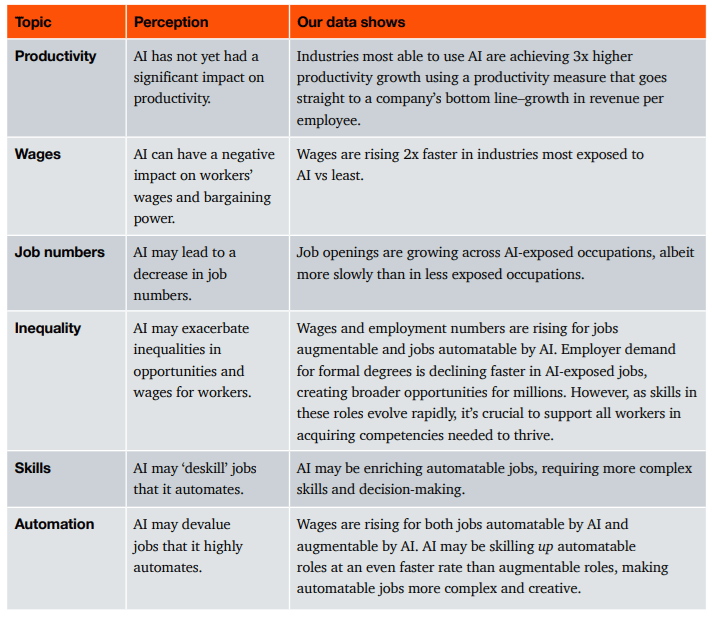
PWC plays “Mythbuster” to lots of conventional wisdom about AI and jobs.
NASA develops ice-drilling robot to look for life on Saturn’s moon
One of NASA’s core scientific missions is the search for extraterrestrial life. Mars is a likely prospect, but the other rocky planets besides earth, Venus and Mercury, are way too hot to support standard Earth-type carbon-based life. And the outer planets are all big gas balls, also not great candidates for life as we know it. However, the outer planets often have rocky moons, and at least a couple of these moons are known to have water trapped below an icy crust. So NASA is developing an ice-drilling robot to look for life in those oceans beneath the surface ice, and is looking at Saturn’s moon Enceladus. Their original target was Jupiter’s moon Europa, also with an ice-covered ocean, but the radiation from Jupiter was determined to be too extreme to allow a successful mission. Enceladus has much less of a radiation problem, but the same sort of ocean under a crust of ice, so the space agency is considering redirecting the robot there. At this point, the fate of the mission probably hangs on whether the proposed 50% cut to NASA’s budget proposed in the Republican budget bill passed by the House is affirmed by the Senate.
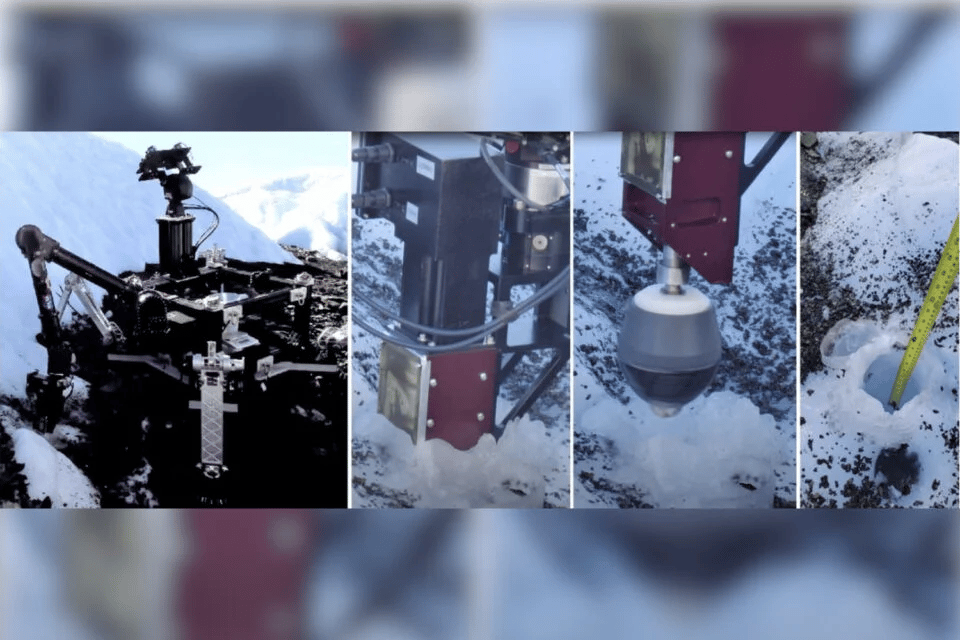
Different views of NASA’s ice-drilling robot, slotted to explore for life on Saturn’s moon Enceladus.
OpenAI details how it thwarted 10 malicious uses of ChatGPT
OpenAI is warning of potential misuses of its ChatGPT model, and has released 10 examples of malicious ploys that it shut down just in the past 2 months. Most of the examples were either state actors (China, Russia, Iran) trying to influence or disrupt US politics, criminals using AI coding tools to develop and debug malware, “task” scams promising to pay high bounties for trivial work (if only the target will first transfer some cryptrocurrency to the scammer), and one example of North Korea having its citizens pose as remote workers for multiple companies using AI, apparently just to get the salaries in hard currency for the benefit of the Dear Leader. AI is complicating the lives of cybersecurity experts around the world, and the good guys are in a race to develop AI tools to thwart and deter the bad guys as fast as threats emerge.

PGA Tour automates play by play with AI
The PGA Tour is embracing AI and a slew of high definition cameras to allow golf fans to follow their favorite players during a match, see shot trails and data on every shot, and give instant AI-generated play by play commentary on every shot by every player. All of this massive real-time data analysis is undergirded by Amazon’s AWS cloud services and its associated Bedrock family of leading AI models.

Golf fans can see shot trails and instant AI-generated commentary on the PGA’s app.
Robots
Amazon reportedly testing humanoid delivery robots
In its relentless quest for operational efficiency, Amazon currently uses over 750,000 robots, mostly in its fulfillment warehouses, in addition to its 1.5 million employees. Now there are credible reports that Amazon is looking at using humanoid robots as delivery workers. The company is apparently constructing a “humanoid park”, an indoor obstacle course, at one of its San Francisco offices to test the concept. The robots will apparently hitch a ride in one of Amazon’s Rivian electric delivery vans, and spring out to deliver packages to the customer’s doorstep.
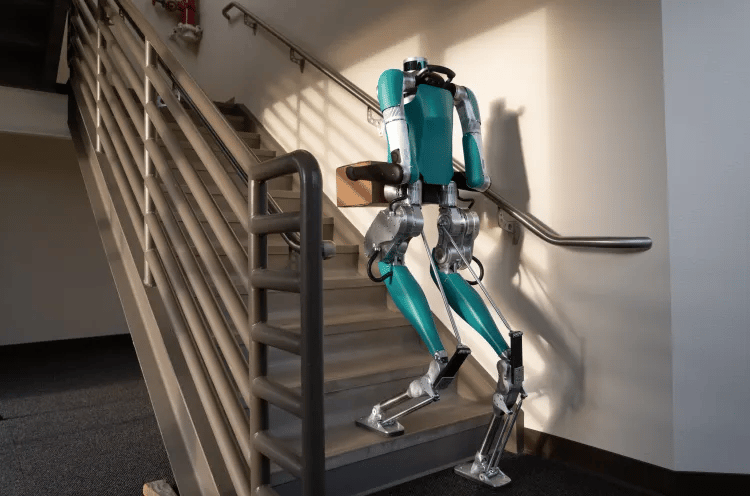
A bipedal robot from Agility Robotics (pictured) has been proposed for package delivery, but there is no confirmation that it has been chosen by Amazon.
Pony AI chosen by Shenzhen taxi company for 1000 robo-taxis
Chinese autonomous vehicle company Pony AI has been chosen by the largest taxi service in the city of Shenzen to deliver a fleet of 1000 robo-taxis. Shenzhen is China’s third-largest city, with a population of 17.5 million, and is a global technology hub, sometimes called “China’s Silicon Valley.” The partnership will give Pony AI an enormous test bed for advancing its driverless AI.
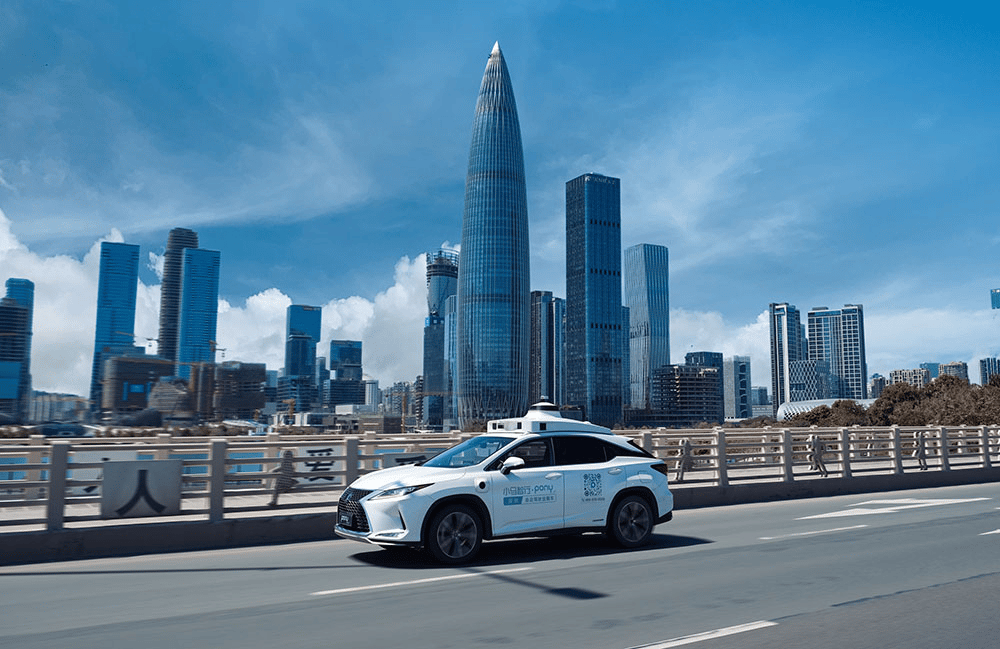
Pony AI says its autonomous vehicles are optimized for complex urban environments.
AI in Medicine
Insilico announces first AI-developed drug approved for Phase II trials
Boston-based AI drug-discovery startup Insilico has announced that one of its medications has become the first AI-developed drug to receive FDA approval to begin Phase II clinical trials with patients in the US. Known by its internal code name as IS018_055, the drug is an a potent anti-inflammatory that is being targeted for Ideopathic Pulmonary Fibrosis, a disease that causes progressive scarring of the lungs, and generally causes death within 2 - 5 years. There are currently no good treatment options for IPF, so if this drug proves effective and safe, it will be a real boon to the 5 million patients who suffer from the disease worldwide.

AI foot scanner detects CHF up to two weeks ahead
UK AI startup Heartfelt Technologies has developed a home-based foot scanner that can detect impending exacerbations of congestive heart failure up to 13 days before hospitalization by measuring ankle swelling. Once worsening CHF is detected, the device sends an alert to the patient’s care team, who can initiate treatment to head off hospitalization. The device is now in clinical trials in the UK, and has also been approved for an Investigational Device Exemption trial on 1,600 heart failure patients in the US, funded by Medicare.

UK’s Heartfelt Technologies has developed a home-based foot scanner to predict CHF exacerbations.
That's a wrap! More news next week.